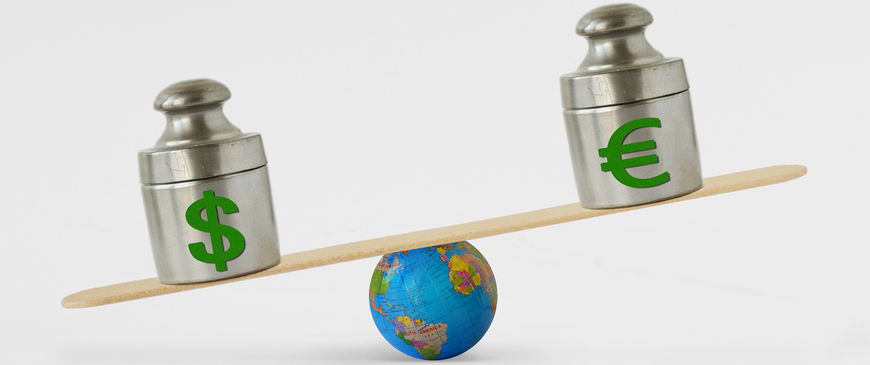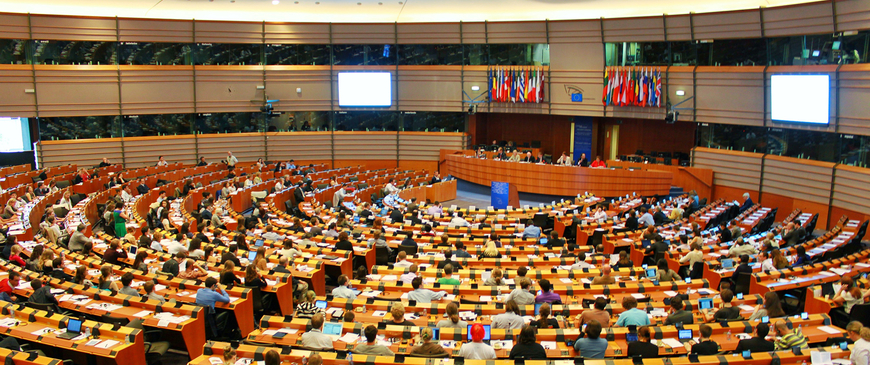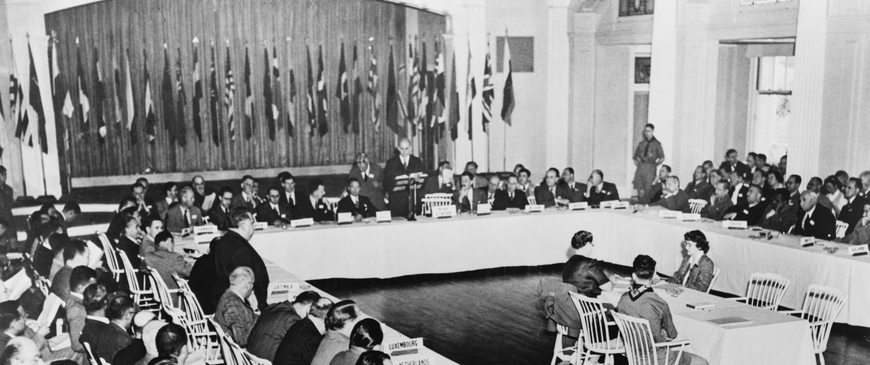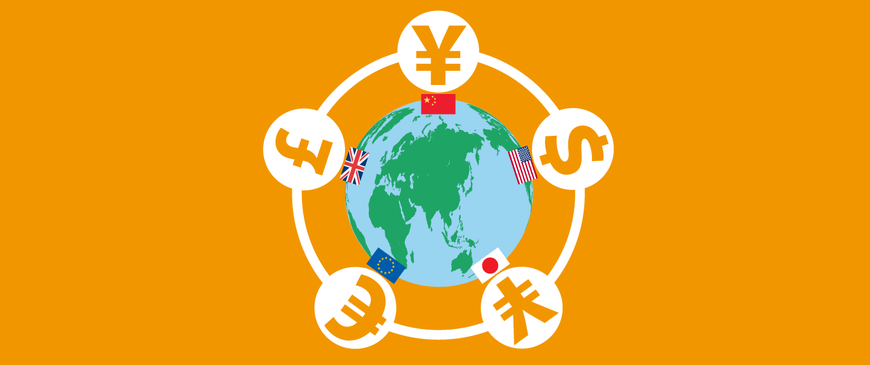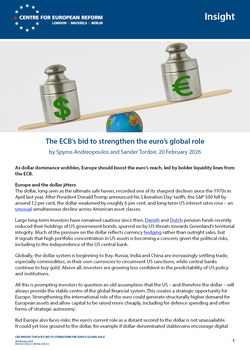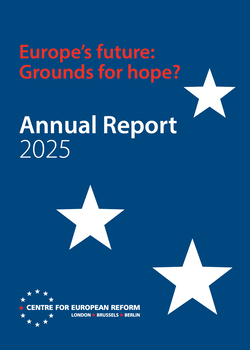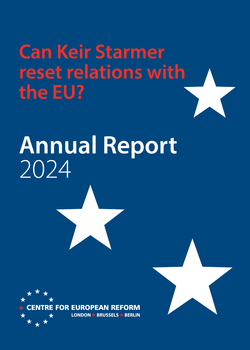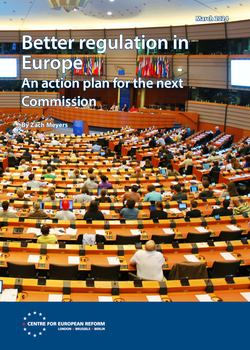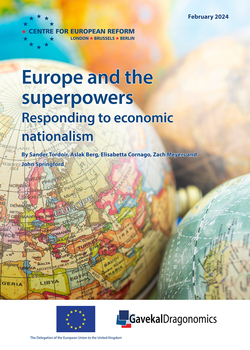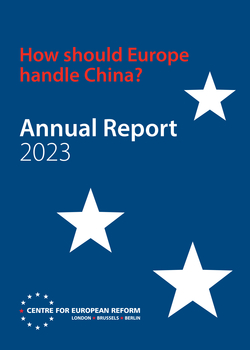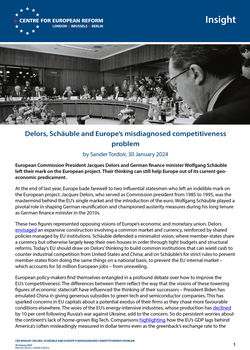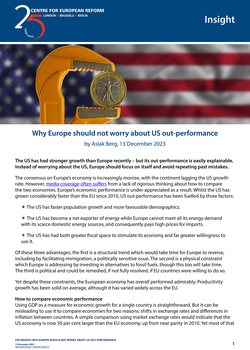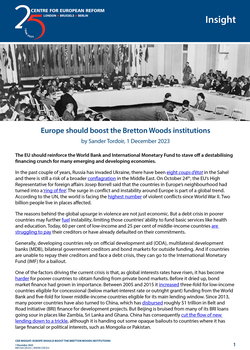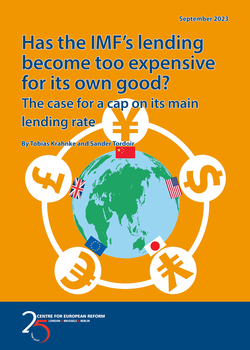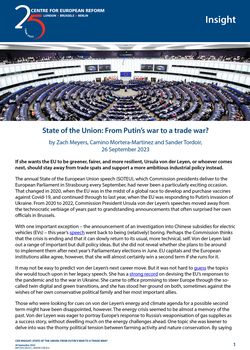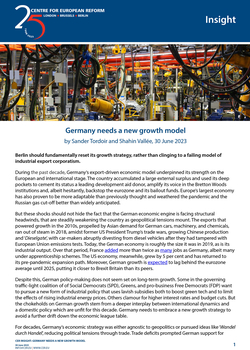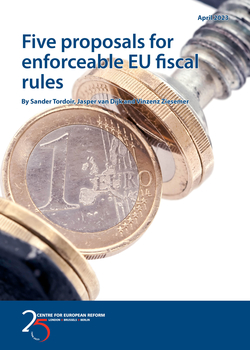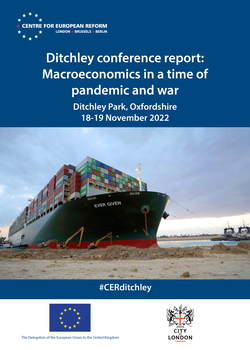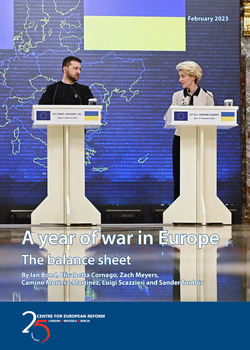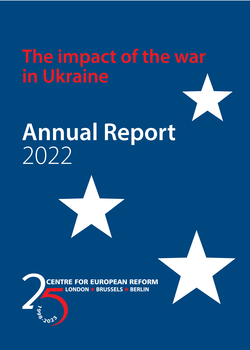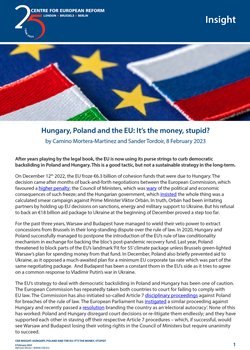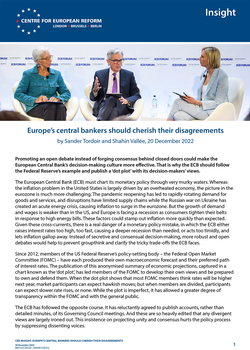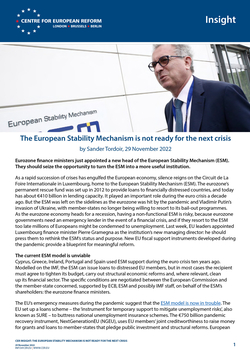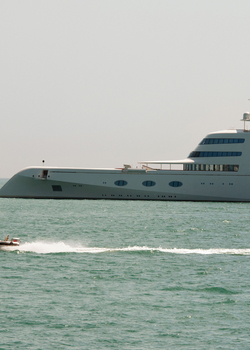Macroeconomics & the euro
The ECB's bid to strengthen the euro's global role
20 February 2026
As dollar dominance wobbles, Europe should boost the euro’s reach, led by bolder liquidity lines from the ECB.
Europe’s future: Grounds for hope? - Annual report 2025
11 February 2026
The CER's annual report features an essay which analyses the many problems the EU faces, but concludes that it is not doomed.
Can Keir Starmer reset relations with the EU?: Annual report 2024
17 February 2025
The CER's annual report starts with an essay on whether Keir Starmer can reset relations with the EU.
Better regulation in Europe: An action plan for the next Commission
19 March 2024
As Europe tries to boost its economic growth and become more innovative, the EU must reinvigorate the ‘better regulation’ agenda – and adapt it to how the EU institutions are evolving.
Europe and the superpowers: Responding to economic nationalism
26 February 2024
Superpower competition poses a significant challenge for Europe's trade-intensive economy. The EU must evolve its toolkit and economic model to respond.
How should Europe handle China?: Annual report 2023
09 February 2024
The CER's annual report starts with an essay on how should Europe handle China. The report then highlights some of the CER's most important publications and events from 2023.
Delors, Schäuble and Europe's misdiagnosed competitiveness problem
30 January 2024
European Commission President Jacques Delors and German finance minister Wolfgang Schäuble left their mark on the European project. Their thinking can still help Europe out of its current geo-economic predicament.
Why Europe should not worry about US out-performance
13 December 2023
The US has had stronger growth than Europe recently – but its out-performance is easily explainable. Instead of worrying about the US, Europe should focus on itself and avoid repeating past mistakes.
Europe should boost the Bretton Woods institutions
01 December 2023
The EU should reinforce the World Bank and International Monetary Fund to stave off a destabilising financing crunch for many emerging and developing economies.
Has the IMF’s lending become too expensive for its own good? The case for a lending rate cap
29 September 2023
The IMF risks losing relevance as multilateral provider of bailouts to countries in debt distress.
State of the Union: From Putin's war to a trade war?
26 September 2023
If she wants the EU to be greener, fairer, and more resilient, Ursula von der Leyen, or whoever comes next, should stay away from trade spats and support a more ambitious industrial policy instead.
Germany needs a new growth model
30 June 2023
Berlin should fundamentally reset its growth strategy, rather than clinging to a failing model of industrial export corporatism.
Five proposals for enforceable EU fiscal rules
17 April 2023
As the EU reforms its fiscal rules it risks repeating past mistakes. The EU should couple Commission discretion with stronger enforcement mechanisms to get member-states to follow debt reduction plans.
Ditchley conference report: Macroeconomics in a time of pandemic and war
24 February 2023
In November, the CER held its annual economics conference on the macroeconomic consequences of the pandemic and Putin’s invasion of Ukraine.
A year of war in Europe: The balance sheet
22 February 2023
Since Russia attacked Ukraine, the CER has tracked the war’s effect on the protagonists, the EU, NATO and other powers. What conclusions can be drawn from the past year?
The impact of the war in Ukraine: Annual report 2022
10 February 2023
The CER's annual report starts with an essay on how the war in Ukraine is changing Europe. The report then highlights some of the CER's most important publications and events from 2022.
Hungary, Poland and the EU: It's the money, stupid?
08 February 2023
After years playing by the legal book, the EU is now using its purse strings to curb democratic backsliding in Poland and Hungary. This is a good tactic, but not a sustainable strategy in the long-term.
Europe's central bankers should cherish their disagreements
20 December 2022
Promoting an open debate instead of forging consensus behind closed doors could make the European Central Bank’s decision-making culture more effective.
The European Stability Mechanism is not ready for the next crisis
29 November 2022
Eurozone finance ministers just appointed a new head of the European Stability Mechanism (ESM). They should seize the opportunity to turn the ESM into a more useful institution.
Using sanctioned Russian assets to rebuild Ukraine will not be easy
03 August 2022
Funding Ukraine’s reconstruction with confiscated assets from Russian elites will be legally complex. Seizing Russia’s frozen foreign reserves may prove easier.

